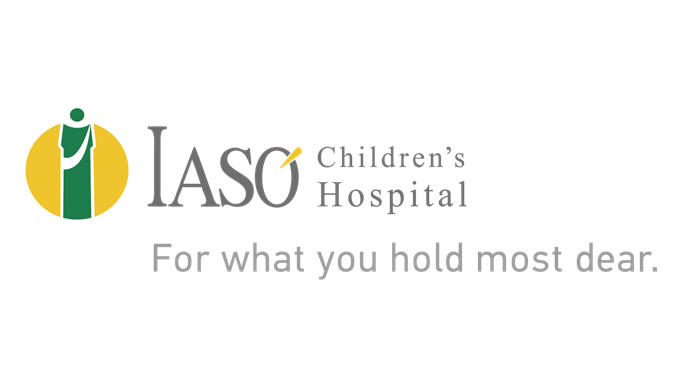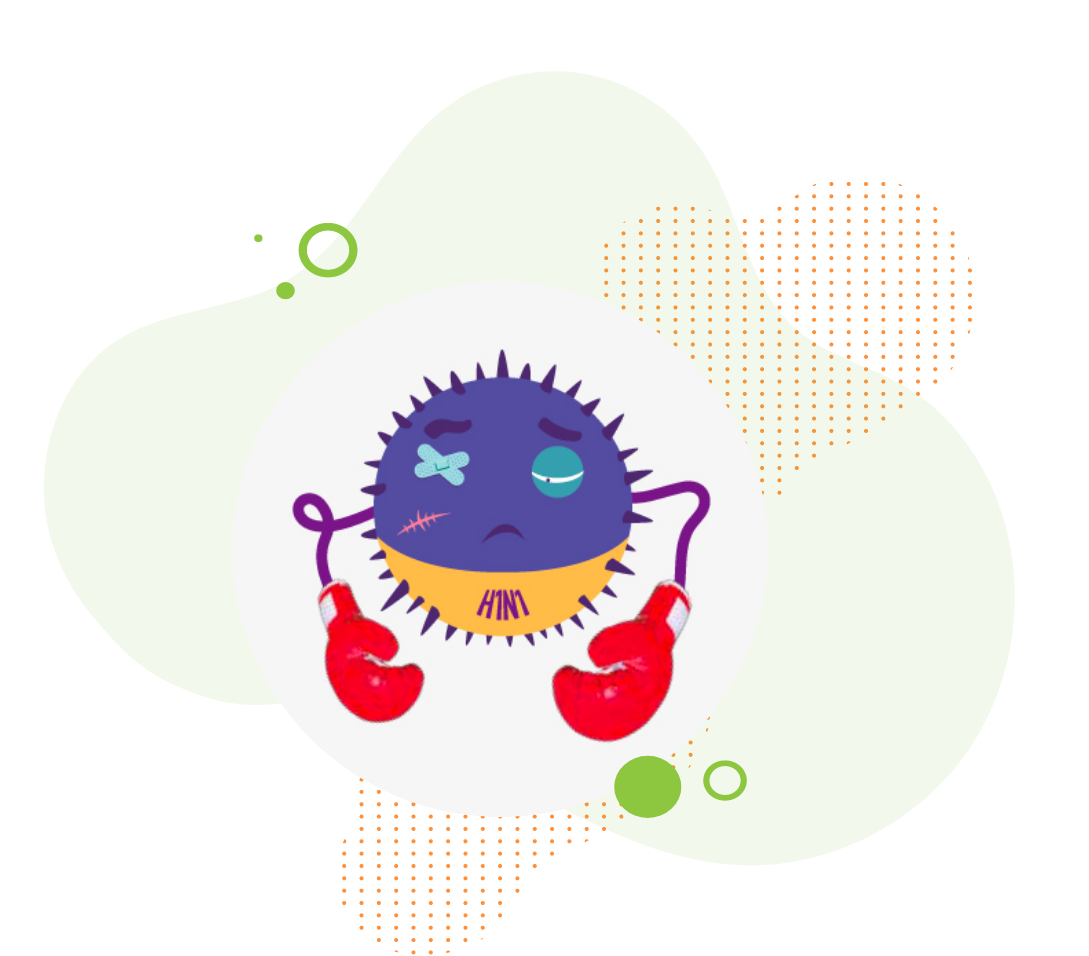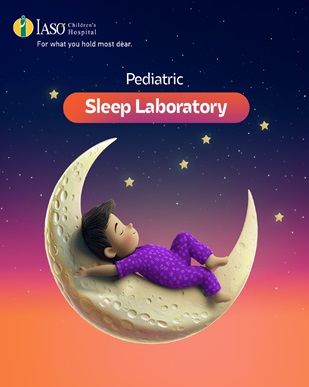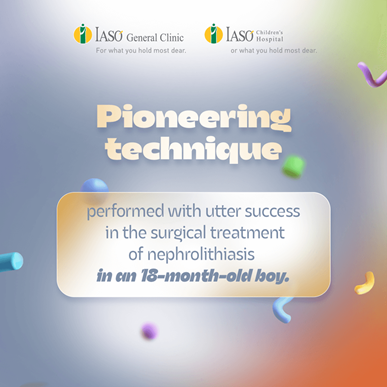
H1N1 virus
The flu is a common virus, caused by different types of influenza viruses. There are differences in the types of flu circulating year after year.
This winter, most cases are caused by influenza A: H1N1 & H3N2 and type B, which explains both the severity and complications observed in several cases.
How can you help a child suffering from the flu?
The flu, along with the rest of the viruses, is usually a self-limiting disease, and patients recover without complications or any special treatment. Administer anti-fever drugs (not aspirin) and plenty of liquids to avoid dehydration of the patient, ensuring a calm, pollutant-free environment (cigarette smoke and fireplace), with moderate temperature.
During the flu season, parents should promptly seek the children’s assessment by a pediatrician. Some children may need hospitalization because they will experience more severe symptoms or complications (such as pneumonia).
The pediatrician will decide whether a child with flu will receive special antiviral treatment (TAMIFLU), in line with the directives in force.
Children under 5, and mostly younger than 2 years, and children with chronic medical conditions (including asthma) have a higher risk of flu complications. Expectant mothers and older people or chronic sufferers who are close to the child suffering from the flu require special attention. These groups should be protected immediately if they are exposed to the virus.
The diagnosis is performed by the pediatrician based on the symptoms and findings of the examination. It is possible to confirm the diagnosis, either through detection of the antigen (Ag) of the virus (fast, but not reliable method) or through detection of the genetic material (PCR) of the virus through a nasopharynx swab. This costs more and the result is usually available after 24 hours, but it is the most reliable method.
When do children need a pediatric assessment?
At a time marked with an increased number of cases (in Greece this occurs between December and March), increased vigilance is required in children’s febrile infections, so that, without panicking, parents may consult a pediatrician if their child's condition is troubling them.
How can we protect ourselves from the flu?
- During the flu season, you should avoid crowded enclosed spaces.
- Wash your hands thoroughly with soap and water or use hand sanitizers.
- Vaccinate against the flu yearly, early on.
- If you come into contact with a patient, you should immediately contact your doctor to advise you on commencing prophylactic treatment.
- Patients, children and adults should return to school or work when they cannot transmit the virus any longer.
Parents should IMMEDIATELY pay a visit to the pediatrician when their child has:
- affected general condition
- breathing difficulty with rapid breathing and/or pallor / cyanosis
- miscommunication, blurring, persisting drowsiness even when afebrile
- persisting fever
- fever reemergence and worsened condition following improvement
- refusal to eat and mainly drink
- continuous vomiting
- strong leg pain with refusal or inability to walk










